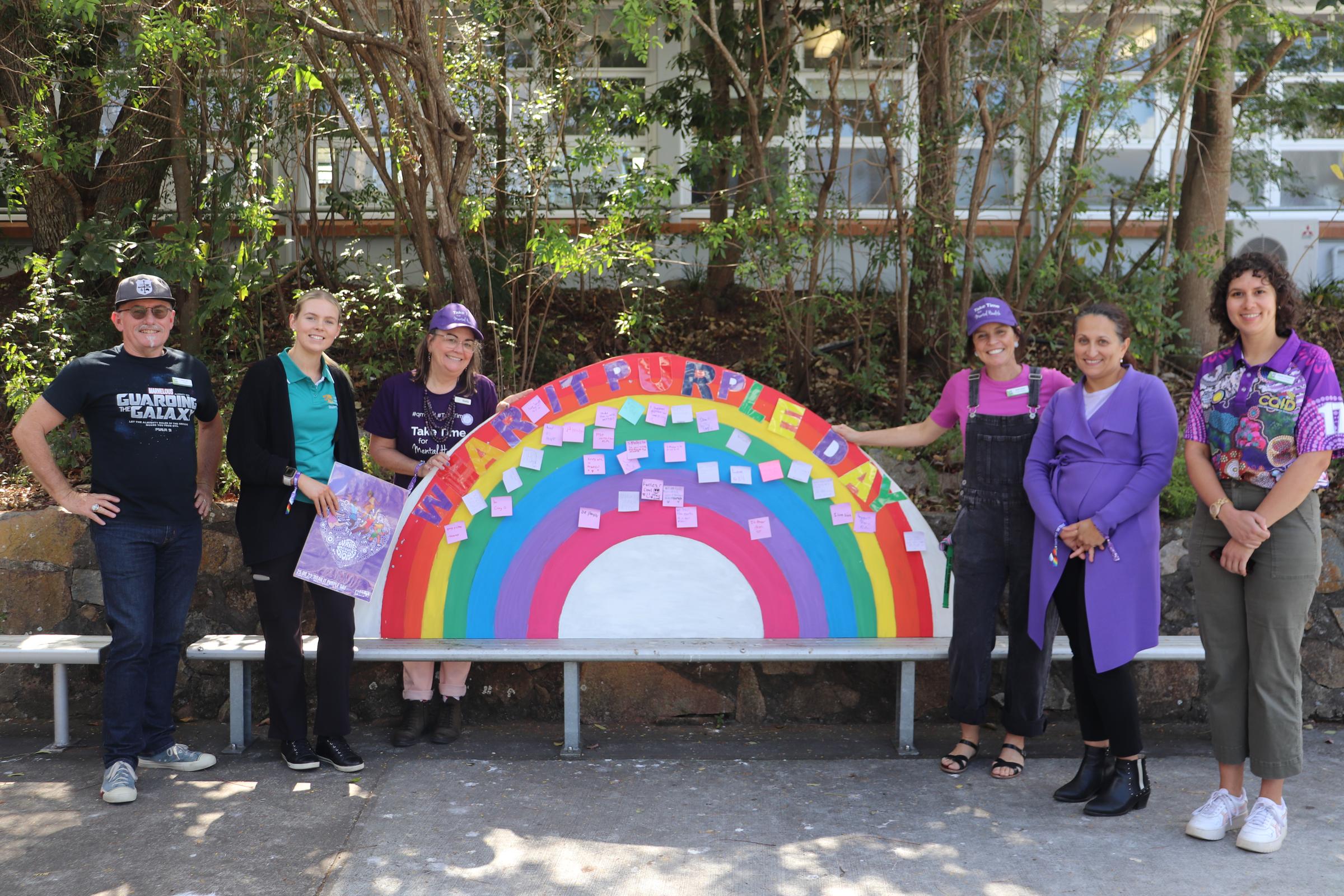Well Being Hub #2

Supporting a student's transition into the new school year
We admit it, we struggle to get back into our work routine after holidays! It's even harder for many students who have been in a holiday routine for the past 6+ weeks. For some students the new school year may also mean the transition from primary to secondary school, or maybe starting at a new school or even just starting a new year level. Here are some common challenges students may have in the first few weeks of the school term and what you can do to support them.
Common challenges for students
- Re-adjusting sleep wake cycle
- Maintaining focus for long periods of time
- Adjusting to a new classroom, teacher, peers, and class timetables
- Re-connecting with peers or making new friends
- Being away from family throughout the day
- Staying off devices
- Prioritising school and homework
What the school can do to help
- Schedule movement and brain breaks throughout the day
- Use a visual timetable and reminders
- Listen to and validate their emotions
- Allow time for students to build connections with one another and their teacher/s
- Notice when difficulties are persisting longer than expected and notify the HOY or GO’s
What parents/carers can do to help
- Establish good routines around sleep
- Encourage good nutrition
- Find a healthy balance of afterschool activities
- Check in regularly to see how they're going
- Encourage good time management techniques
- Reach out to their Head of Year or year Level Guidance Officer if you have any concerns, you can do this via the online referral form on the school website Online Referral Form
General inquiries can be directed to wellbeinghub2@thegapshs.eq.edu.au
From The School Nurse....
Starting High School
Moving to high school is one of the key milestones of a teenager’s life. It’s an exciting phase that happens alongside other big changes, including puberty.
It’s important for parents to stay informed about their teen’s transition to high school and to learn how to support them as they navigate these changes.
This can help you if:
- you want to learn about the high-school-transition phase and what to look out for
- you’re seeking expert advice on this major life change and on how to support your teen.
What to know about the transition phase?
High school is an exciting time in your teen’s life. During their transition to high school, they will experience new challenges and plenty of changes. You can support your teen by talking to them about any worries they may have during this time. Some of the changes your teen is likely to face during transition include:
- being separated from the friends they made at primary school
- meeting new people and making new friends
- navigating their new school campus
- learning different rules and expectations
- getting to know multiple teachers
- managing their study schedule and a new routine
- moving into adolescence and experiencing puberty
- starting to use social media and increasing their technology use.
Tips for starting high school
You’re ready for your next adventure - high school.
You might be feeling a bit nervous - That’s OK and totally normal when you start something new.
As your first day approaches, try some of our tips to make your transition to high school easier.
Tip 1: Take care of yourself
Sleeping, exercising, and eating healthy will help you to stay focussed. It will also give you the energy you need to tackle any subject and join in class discussions. Looking after yourself will help you to feel great, build self-confidence and share positive vibes at school.
Tip 2: Try new things
To help you settle in, be open to meeting new people and trying new things. There’s plenty of others in the same boat as you, so try and share these experiences with your new classmates. Make sure you check out what your school has to offer, like different sports, band or even a photography club!
Tip 3: Keep up a routine
Homework will be one big part of high school life that you’ll need to get used to. But don’t worry, if you set up a routine that includes time for study, you’ll stay on top of your workload. If you can, set up a quiet, distraction-free area at home, this will do homework way easier to do.
Welcome to your high school years, have fun and enjoy it. There may be some challenges ahead, but remember you’ve made it this far!
How can I help my teen?
You can help your teen settle in at high school by:
- Communicating with your teen about what to expect as they start high school. Encourage them to ask questions, and if you don’t know the answers, find them together.
- Helping your teen prepare for high school. Talk to them about what they need and organise those things together.
- Talking to your teen about how to use social media and technology safely and ask them to show you their favourite apps, games, and websites. Lead by example, set realistic boundaries for internet use and show them how to use it in a positive way.
- Getting to know other parents, your teen’s teachers, and the school community.
- Encouraging your teen to make new friends and to participate in social activities.
- Getting involved in school events.
- Being present and supportive during your teen’s transition to high school.
How to stay involved
Teens may want more independence as they transition to high school, which can be challenging for parents. While it’s good to give your teen the freedom to form their identity, to make new friends and to explore their interests, you still play a key role in helping them to navigate this phase.
Here’s how you can stay involved in your teen’s school life as they become more independent:
- Get involved with the school community. Go to parent-teacher conferences and stay across communication and key events. If there’s a school website, online app, or newsletter, check it regularly to stay up to date.
- Observe changes in your teen, particularly their mental and physical health. If you have concerns about your child, contact your school or GP.
- Make time to talk to your teen about school life at a time that works for both of you.
- Respect your teen’s need for independence and their ability to make decisions for themselves. Offer advice and support but give them the opportunity to solve their own problems.
- Celebrate their wins. Cheer them on when they do something great at school, such as perform well academically, take part in a sporting event, or make a new friend. Rewarding their positive behaviours will strengthen their abilities and motivation to do well in the future.
Good luck
Stella. 😊

